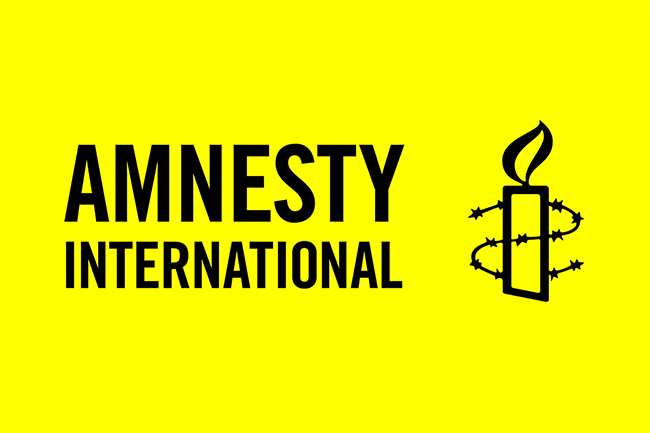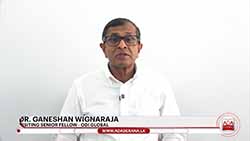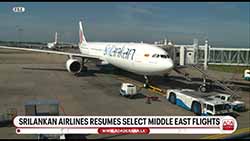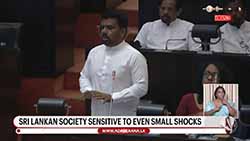Human rights compliant recovery measures critical to stop spiraling hunger, poverty in Sri Lanka - AI
October 5, 2022 12:00 am
The Sri Lankan authorities and the international community must fully incorporate human rights into their responses to the country’s economic crisis, Amnesty International said in a new report today, as people in the country face serious concerns around access to healthcare while being driven to the brink of starvation, widespread malnutrition, and deep poverty.
The report, “We are near total breakdown”: Protecting the rights to health, food and social security in Sri Lanka’s economic crisis, explores the catastrophic impact of the crisis on the economic and social rights for the people of Sri Lanka.
“For months now, the people of Sri Lanka have been suffering from severe shortages of food and have struggled to access healthcare, while sky-high inflation has exacerbated already existing patterns of inequality. The Sri Lankan authorities and the international community must act quickly to mitigate the widespread human rights cost of the crisis, which has cruelly stripped away people’s access to their rights,” said Sanhita Ambast, Amnesty International’s Researcher on Economic, Social and Cultural Rights.
The report details the recovery measures that Sri Lanka’s leaders and the international community must put in place to safeguard human rights in their responses to the situation, such as increasing the amount of international assistance, ensuring comprehensive social protection, and considering all options for debt relief, including debt cancellation.
The Amnesty International says life-threatening shortages of medicine and essential equipment are major concerns in Sri Lanka as the economic crisis deepens. From shortages of gauze, intravenous antibiotics and insulin to requests to re-use catheters or endotracheal tubes, the last few months have brought shocking challenges to Sri Lanka’s healthcare system, the organization said further.
Fuel shortages have also rendered transport either unavailable or extremely expensive, making it difficult or impossible for people to access healthcare services, particularly those from the Malaiyaha Tamil community who live and work in plantations that are historically poorly served by essential services.
Rising prices driven by inflation and reduced household income mean people are increasingly unable to meet their basic food needs, the Amnesty International added.
The Government of Sri Lanka, donor States, and international financial institutions are putting in place programs and economic reforms to address the economic crisis. The Sri Lankan authorities and donor States must ensure that they meet their obligations under international human rights law by safeguarding the rights to health and adequate food in all aid agreements. The government of Sri Lanka and international financial institutions must also conduct human rights impact assessments before implementing economic reforms; it remains unclear as to whether these have been or will be conducted.
The Sri Lankan authorities are currently in discussions with creditors on restructuring the country’s debt. All options for debt relief should be considered, including debt cancellation, which would allow the government to increase public investment in crucial healthcare and social protection systems.
Any debt relief agreements must not undermine Sri Lanka’s ability to meet its human rights obligations. Reforms of social protection systems, meanwhile, must be carried out transparently and with meaningful participation of those who will be affected by the changes. The government should also explore all options for accessing the maximum available resources to fulfil human rights obligations, including through implementing progressive, redistributive tax reform.
“The economic crisis has led to devastating consequences for the people of Sri Lanka, many of whom are unable to ensure their children have enough food or to access healthcare for sick relatives. In order to convert this near breakdown into a breakthrough, the Sri Lankan authorities must ensure that human rights are placed at the heart of their responses to the crisis, and that all people in the country can access social protection systems,” said Sanhita Ambast.
“The international community must offer all possible financial and technical support to Sri Lanka while putting measures in place to protect marginalized groups from disproportionate harm.”
-Amnesty International












